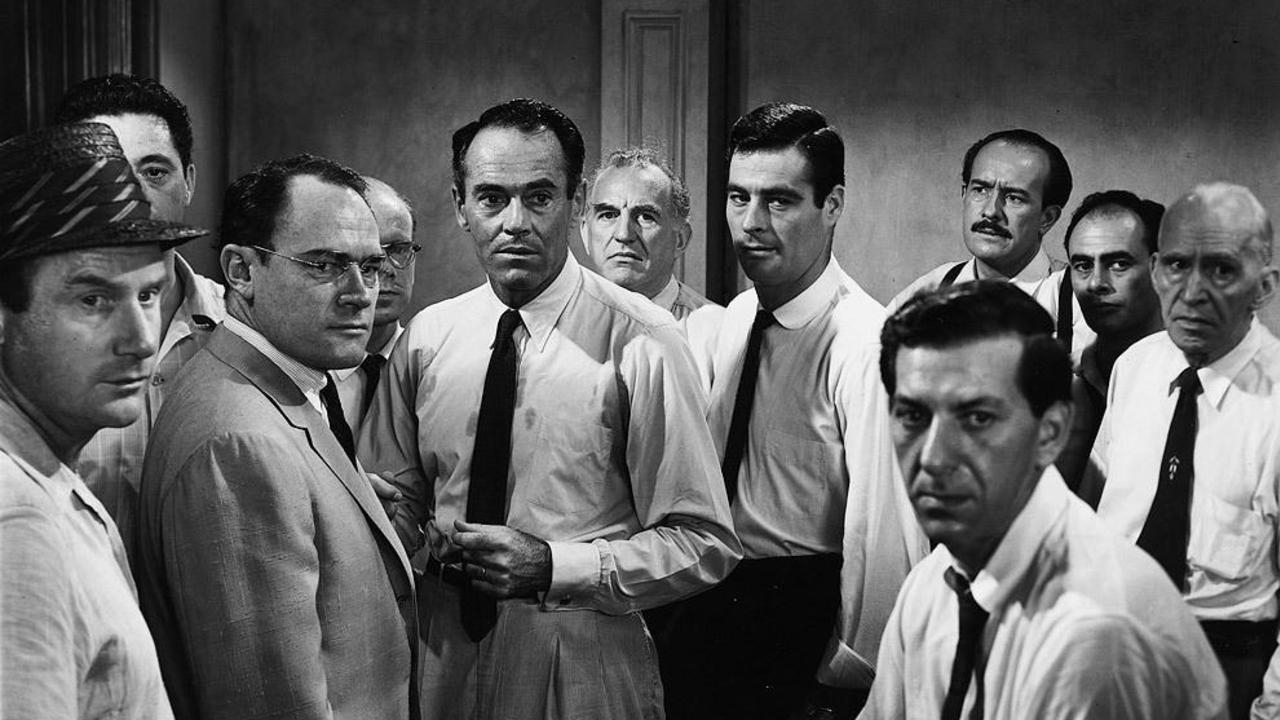By Myrto Katsouli,
The 12 Jury is the Greek interpretation and theatrical adaptation of the 1957 American film 12 Angry Men, the staging of which is carried out, for the 7th year in the theater “Anesis” in Athens, until the 29th of December (to book tickets, visit this site). The play depicts bluntly the social stereotypes, standards, and mindset of the society back in the ’50s, while the viewer is upfronted by a brutal allegory of the modern society psychograph.
The plot inspects the murder case of a man, whose 16-year-old son hypothetically committed the murder, which is the matter of the court conviction. The time for the jury is at hand, as for the US jurisdictional procedure, in order to agree unanimously upon the youngster’s penalty. They are given a choice: first, find him “guilty”, therefore imposing the death penalty, or consider the boy as “innocent”, giving him a second chance for a fair trial.

Each jury votes according to their diverse personal beliefs, experiences, and professions, letting the viewers understand the multidimensional or unidimensional perspectives towards the same case. At a first glance, although the boy appears to be guilty, the audience’s interest is immediately sparked by the first democratic voting, where one of the juries disagrees upon convicting the defendant to death. He sets for the first time the basis of the reasonable doubt, forcing the other participants to question the logic, the ethics, and the importance of their position, before costing somebody their life, as a result of their poor or superficial judgment.
The mentality behind “reasonable doubt” lies upon the feeling of uncertainty, especially about the guilt of a defendant that arises or remains upon fair and thorough consideration of the evidence, or lack thereof. Proof of guilt beyond a reasonable doubt is, moreover, required for the conviction of a defendant. A reasonable doubt exists when a factfinder cannot firmly and morally discern a person’s guilt or the definite existence of a presumed fact. Surely, this concern has to be more than an imaginary doubt, and it is often defined judicially, for such doubt would cause a reasonable person to hesitate before acting in a matter of importance.

The Latin phrase in dubio pro reo (“innocent until proven guilty”) frames strictly the Greek penal system and provides the defendant with the benefit of the doubt, which lies upon the general sense of the protection of the truth and the most lawful, yet fair, conviction. Of course, the stakes of the defendant’s freedom are high, during the trial of a criminal case, therefore it is important to thoroughly examine the evidence, the objective and subjective nature of the crime, and follow an impartial procedure, in order to come as close to the truth as possible.
Coming back to the play, only one of the juries does doubt the guilt of the 16-year-old boy, letting the story behind the presumed murder unfold and showcase the bigger picture of each piece of evidence. The audience comes to doubt along with the jury the true nature of the crime, and therefore question the morals, the mentality, and the sanity of each social status. We realize how easily we can misjudge a situation, by persisting on false appearances, how wrongly we can perceive a person, by being drawn by our own individualistic overview, and how much afraid we are to confront the truth, by following the mass, sheep-like and forerunner thinking.
The acting is brilliant, the play illustrates almost perfectly the contemporary society, and the viewers are challenged to deal with the horrifying facade of themselves. I definitely recommend watching this amazing theatrical one-act, should you be prepared to face your most ruthless, cynic, and raw version of the truth.
References
- Definition of “reasonable doubt”, merriam-webster.com, Available here
- «Οι 12 Ένορκοι», ticketmaster.gr, Available here
- 12 Angry Men (1957), criterion.com, Available here




